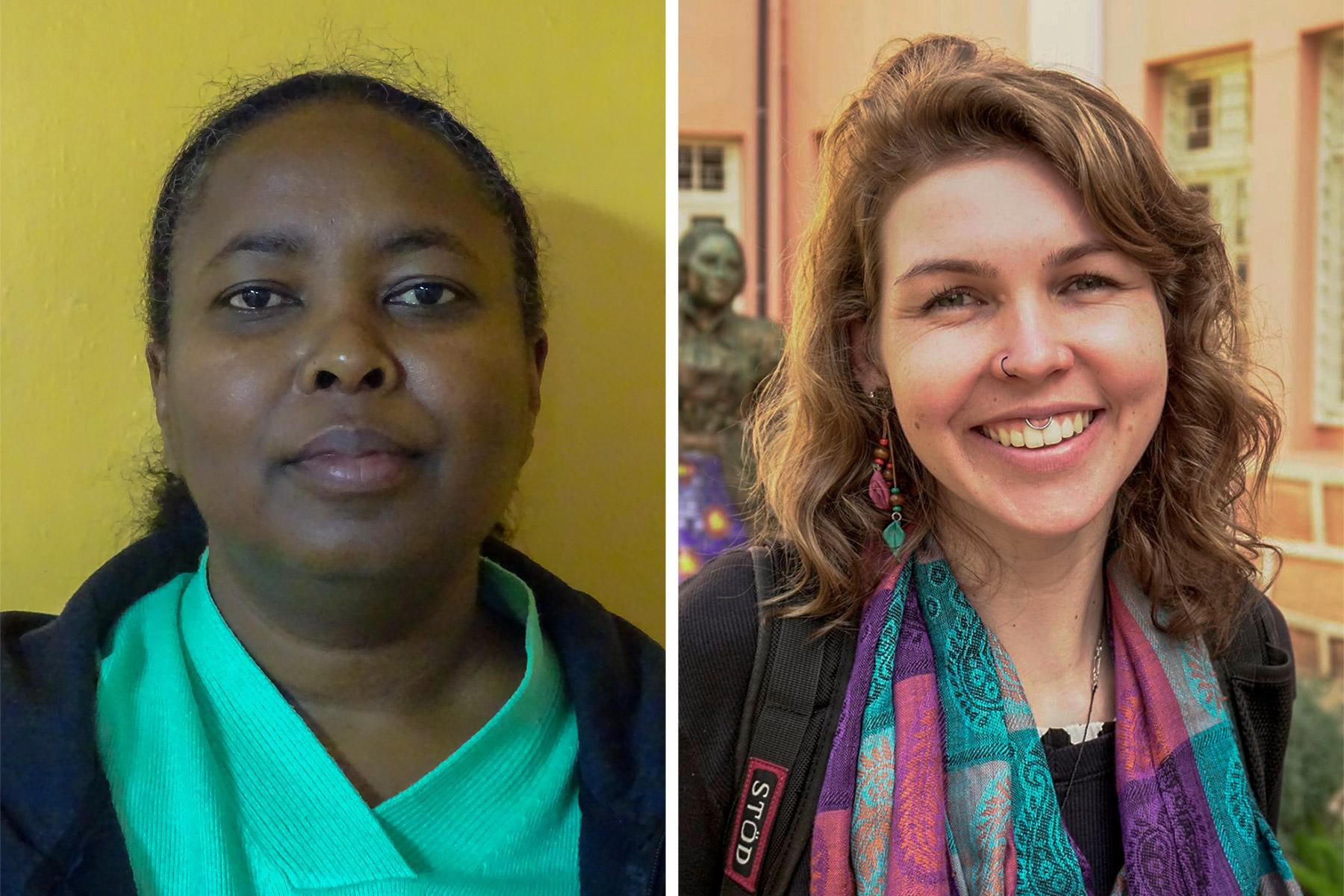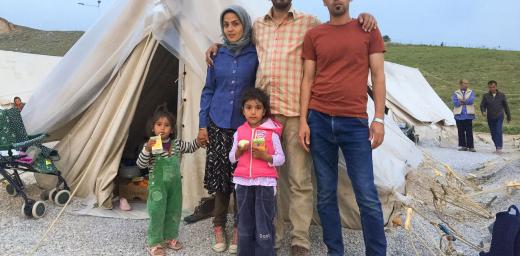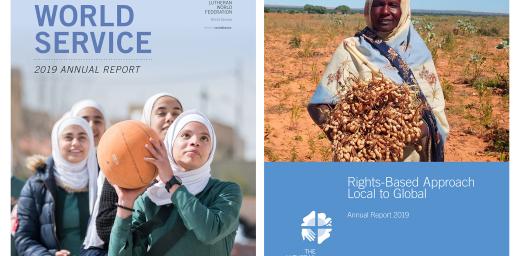A new phase in faith-based advocacy for gender justice

Participants in the online training included Lillian W. Kantai, LWF Kenya-Somali Program (left) and Sabrina Senger, Evangelical Church of the Lutheran Confession in Brazil. Photos courtesy
LWF joins in amplifying lessons learned in affirming women’s human rights and gender justice
(LWI) – Three years ago, the Augustinian Lutheran Church of Guatemala (ILAG) started a boarding school for young indigenous women, some of whom had been married off, with the goal to equip them with both formal education and technical life skills. “Every year people ask us for a success story, but it is very difficult to report on success in one year as these are cultural changes, generational changes; how can we present these results?”
This question by ILAG President Rev. Karen Castillo Echeverría echoed the objective of an annual women’s human rights training by faith-based organizations, which after six years of international gatherings is shifting to a more regional-based approach, utilizing the skills gained by the women and men who have participated. The recent online course, 7-9 September, brought together 60 participants from all world regions. Facilitators took the gender and human rights’ experts through practical aspects such as how to monitor and measure change in different settings, apply commonly used United Nations human rights tools and resources, and engage with policy makers in their countries.
The Lutheran World Federation (LWF) has been running the training since 2015 jointly with ACT Alliance, Act Church of Sweden, Finn Church Aid, Mission 21, Norwegian Church Aid and the World Council of Churches.
Isaiah Toroitich, Head of Global Advocacy at the LWF addressed the question from Castillo and others who face similar challenges. “It is important to have a baseline during your planning stage or before implementation, so that you can actually determine what changes have occurred. Some are easier to measure, such as in policy and laws; others are harder, such as change in attitude which has several steps,” he said. Nonetheless, change of attitude could lead to change in policy, he added.
Networking, peer learning
Trainees also use the sessions to exchange knowledge, experience and for networking. Eva Ekelund, Head of Policy and Deputy International Director, Act Church of Sweden, referred to the importance of this exchange. “There is need to always refer to the life experiences of women and girls in different parts of the world, but to also acknowledge the advocacy efforts that are happening at the local levels, and bring up some of those experiences and best practices for peer learning.”
Ranya Karam, who works at the Star Mountain Rehabilitation Center for adults and children with intellectual disability in Ramallah, Palestine, sought information on gender sensitive family law in different Christian churches in her region. She learned about the Evangelical Lutheran Church in Jordan and the Holy Land, which has an Ecclesiastical Court constitution that provides for gender equality when dealing with family issues including inheritance.
Language, safety and security
This year’s training of trainers included modules on how the use of certain words and language affects advocacy, and safety and security when addressing the pushback and challenges that gender and human rights’ advocates encounter. “Language in many societies often embodies dominant ideologies, which can contribute to reinforcing harmful social norms. Affirmative language about women’s wisdom, knowledge and work skills enables us to create new images of women,” said Rev. Dr Marcia Blasi, LWF Program Executive for Gender Justice and Women’s Empowerment in a joint presentation with Rachel Tavernor, Global Advocacy Consultant for the ACT Alliance Gender Justice Program.
Blasi and Tavernor noted that in many countries today, religious fundamentalist groups and political conservative forces have allied in rolling back human rights with a special focus on blocking progress against women’s rights.
Faith-based actors therefore need to understand the tactics used by anti-rights actors, and work together to counter the pushbacks. “As faith actors we are called to be bold and prophetic voices,” they said, urging participants to reclaim narratives for gender justice. “We can be aware of how language about God, about men and women, about leadership and service is being taught and how it creates power dynamics in church and society.”
Women and men committed to human rights
Brazilian feminist theologian Sabrina Senger, said it was very encouraging to learn from the diversity of experiences of other women and their commitment to gender justice from a faith perspective.
“I am passionate about the creative and purposeful resistance of women and men committed to human rights and to overcoming patriarchal and neoliberal models,” noted the co-coordinator of the Gender and Religion Program at Faculdades EST, the theological institute of the Evangelical Church of the Lutheran Confession in Brazil.
The training, she added, affirmed her conviction of the need to pay attention to the sexist separation of power in society. “There is no way to ‘unsee’ when our eyes and bodies pay attention to the various forms of violence and injustice to which we are subjected on a daily basis in the political, economic, religious, educational spheres.”
Vital to contextualize
Summing up her experience, Lillian W. Kantai, Technical Advisor for Advocacy and Human Rights with the LWF Kenya-Somali Program, said this year’s training has “challenged me to contextualize.” She highlighted the connection between faith and gender rights’ advocacy, language as an advocacy tool, and how to navigate the limitations that faith spaces could pose for women’s rights.
Kantai is passionate about continuing to promote women’s meaningful participation particularly in conflict resolution and peacemaking. “They [women] constitute the majority of victims and suffer disproportionately especially though sexual violence which is used as tool of war.”
Together with fellow participants from Africa, Kantai also took part in a session to prepare trainers to facilitate the first regional pilot training for women’s human rights that will take place, 11-18 October, in the region.
By LWF/P. Mumia
Gender Justice and women’s empowerment is a cross-cutting theme in all of LWF’s advocacy. Gender justice advocacy focuses on the protection and promotion of human rights and human dignity with emphasis on women and girls. Advocacy within the communion and the wider world addresses the full participation of women in church and society.





